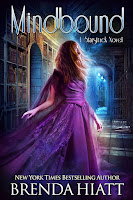The “sweeter” side of YA (Brenda Hiatt)
When I started reading YA again as an adult, a few years before I decided to try my hand at writing it, I couldn’t help noticing how much the genre had changed since I was a teen—mostly in good ways. More recent teen novels covered a far wider range of subjects than I remembered, no longer shying away from topics publishers had avoided in the “old days.” The books had also become more diverse, an area where the books of my youth often fell short. At the same time, it seemed harder to find books like the ones I connected with in my early teen years.
The explosion in popularity YA fiction has enjoyed over the past decade or two likely led to the genre’s rapidly expanding boundaries. Publishers and agents alike quickly realized that the YA market had expanded as well, far beyond teen readers. Big bestsellers like the Harry Potter and Twilight books had huge numbers of adult fans, as well. As a result, more and more books were marketed as YA, some of them fairly obviously geared toward readers well past their teens.
On the one hand, I think it’s great that so many of today’s YA books address difficult topics head-on in ways they didn’t in the past. Teens need books that explore the real world challenges they face today, including broken homes, gender issues, racism, drug and alcohol abuse, and more. On the other hand, I worry that some young readers are getting left behind.
In trying to break into the YA market, I researched what agents and editors were looking for. Over and over I heard them ask for books that push boundaries. Edgy books. Issue books. Books that don’t shy away from difficult subjects like sex, violence, mental trauma and more. Many also insisted that YA characters should ideally be 16 or older, the better to engage with those edgy issues. I’m sure adult readers appreciate books like that. They’re also great for teen readers who are ready to—or need to—read about those issues. But what about young readers who aren’t ready for that? Where were the books for “tweens” just graduating from middle grade fiction?
Looking at what the traditional houses were publishing and soliciting, there seemed to be a gap in the market. Even fantasy YA had begun targeting older and older readers—maybe because that’s where the money is? But where are those readers going to come from if younger readers barely outgrowing middle grade books can’t find stories that resonate with them? Isn’t it important to keep them reading?
Maybe I’m not as sophisticated as some readers, but I’ve always enjoyed fun books that don’t rely on real-life “edgy” issues for their drama. I prefer speculative fiction, where characters face improbable, larger-than-life issues, have amazing adventures and emerge both victorious and stronger. Not coincidentally, stories like that are also more apt to be appropriate for younger readers. So when I started writing YA fiction myself, I deliberately chose to make my characters a bit younger than the norm—fifteen-year-old sophomores in high school. A perfect age to experience the wonder—and innocence—of first love along the way to adventure, without sexual complications. Time enough for that later, right?
As I began releasing books in my “sweet” YA SFF series, I was happily surprised to discover that not only younger teens, but a whole lot of adult readers are apparently hungering for books like mine. Now, a decade later, I know lots of authors, mostly indie, finding great success writing YA fiction that skews younger. That should be good news even to those who write “upper” YA, since many of these are your future readers. I guess YA fiction is in pretty good shape after all!
Brenda Hiatt is the New York Times and USA Today bestselling author of the award-winning Starstruck series, which is distinctly aimed at younger YA readers (and older readers who prefer sweet/clean teen romance). Mindbound, book 11 in that series, released this month!

I'm with you on the fun books. Lately, I'll read anything that's humor.
ReplyDeleteEasy on the mind books are certainly needed for YA readers. I just started a trilogy that fits that description. They're by Stephanie Burgis; Kat Incorrigible, Renegade Magic, andStolen Magic.
ReplyDeleteI dislike the mindset that a book/series has to be "heavy" or deal with difficult topics to be "worthy." Reading should be fun! At least in my opinion. :)
ReplyDelete